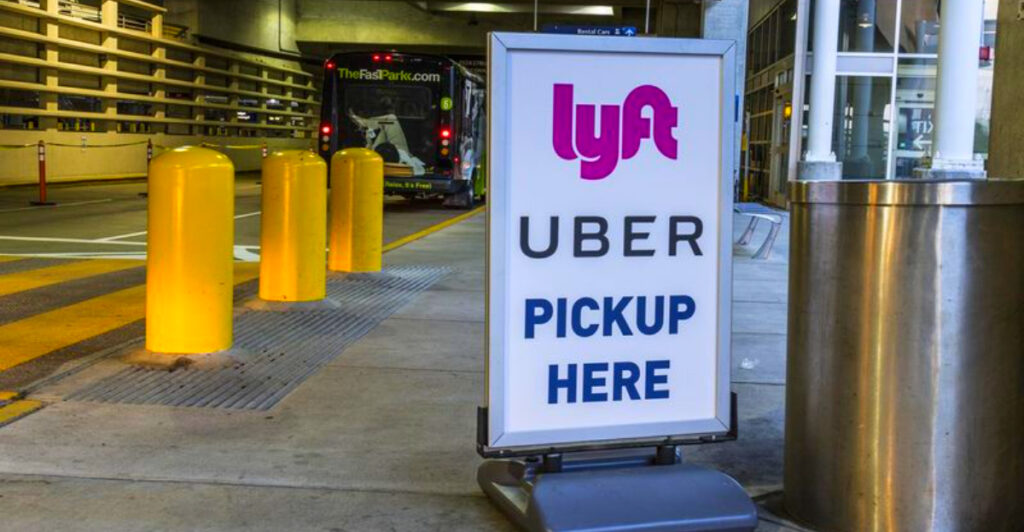Traveling opens your eyes to new cultures, foods, and adventures, but it can also make you a target for scammers who prey on tourists. Every year, millions of travelers lose money, personal information, and precious vacation time to clever cons designed to catch you off guard. The good news is that most scams follow predictable patterns, and once you know what to watch for, you can protect yourself and enjoy your trip with confidence.
1. Distraction pickpocketing (the “spill,” clipboard/petition, or bracelet string)
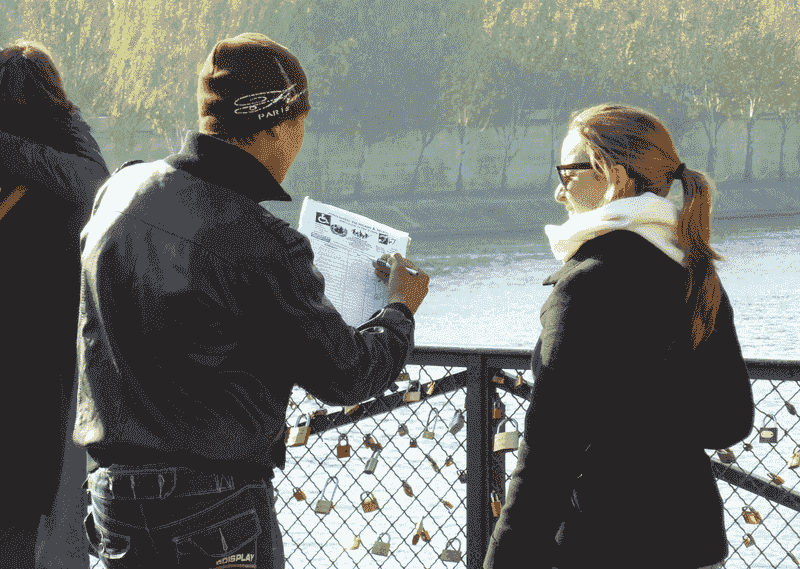
How this scam works? You’re admiring the Eiffel Tower when suddenly someone bumps into you and spills coffee all over your shirt. While they’re apologizing and dabbing at the mess, their partner is quietly unzipping your bag behind you.
This classic distraction technique works because your brain can only focus on one urgent thing at a time. Scammers also use clipboards with petitions, “free” friendship bracelets they tie on your wrist, or even tossing a baby doll at you to create confusion.
Keep your phone and wallet in front pockets with zippers or use a cross-body bag you can see. When strangers approach with clipboards or bracelets, keep walking and say a firm “no thanks” without breaking stride.
2. “Closed attraction” redirect

You’ve been dreaming of visiting the Colosseum for months, but when you arrive, a concerned local tells you it’s closed for repairs today. How convenient that he knows a “much better” tour or shop nearby that just happens to pay him commission for every tourist he brings.
This scam thrives on your disappointment and the natural instinct to trust locals. The attraction is almost always open, but scammers position themselves near entrances to intercept confused visitors.
Before you leave your hotel, check official websites for current hours and closures. If someone on the street contradicts that information, smile politely and walk straight to the entrance to see for yourself. Real closures will have official signage and staff.
3. Taxi tricks (unlicensed cars, rigged meters, route padding)

Exhausted from your flight, you just want to get to your hotel quickly. That’s when a driver approaches offering a ride, claiming the meter is “broken” but he’ll give you a “fair price.”
Spoiler alert: the price won’t be fair. Unlicensed drivers charge whatever they want, while licensed drivers with rigged meters watch the fare climb impossibly fast. Some take scenic detours through half the city to pad the bill.
Always use official taxi stands at airports or book through reputable apps like Uber or Bolt. Before you start moving, confirm the meter is running. Look up the typical fare beforehand so you’ll know if something feels off during the ride.
4. Rideshare imposters at airports
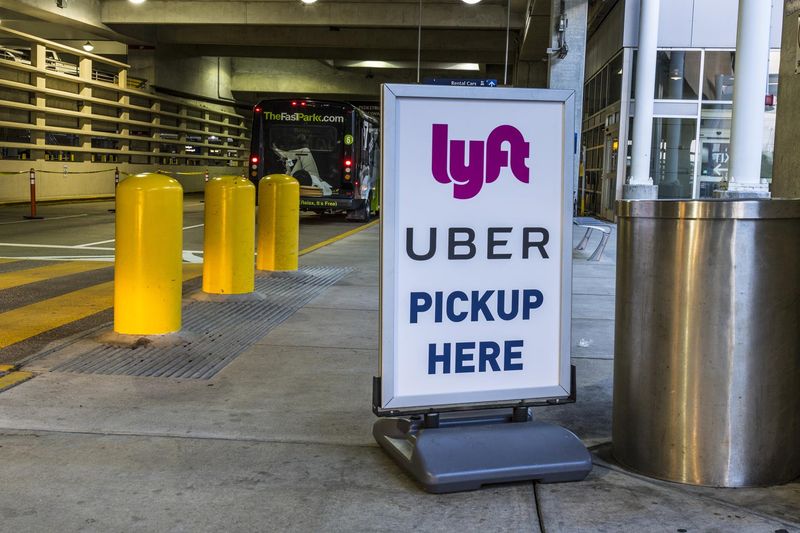
Your Uber is three minutes away, but someone walks up holding a phone and asks, “Are you Sarah?” Before you can think, they’re loading your bags and driving off—except this isn’t your real driver.
Impostors hang around airport pickup zones, listening for names and watching for confused travelers checking their phones. Once you’re in their car, they can charge whatever they want or take you somewhere unsafe.
Never get into a vehicle until you’ve verified every detail matches your app: license plate number, car make and model, and the driver’s photo. Uber even offers a PIN verification feature you can enable for extra security. When in doubt, cancel and request a new ride.
5. Law-enforcement imposters (fake “tourist police,” INTERPOL/CBP)

A stern-looking person in an official-looking uniform stops you on the street, flashes a badge, and claims you’ve violated a local law. They demand to see your passport and an immediate cash fine, or they threaten arrest.
Real police rarely ask tourists for on-the-spot fines or demand to hold your passport during street stops. Scammers count on your fear and confusion in a foreign country to make you comply without questioning.
Politely ask to go to the nearest police station to resolve the issue there. Never hand over your passport or pay cash on the street. If you receive suspicious emails or calls claiming to be from INTERPOL or customs, hang up and contact the agency directly using official numbers you find yourself.
6. ATM and card skimming/shimming
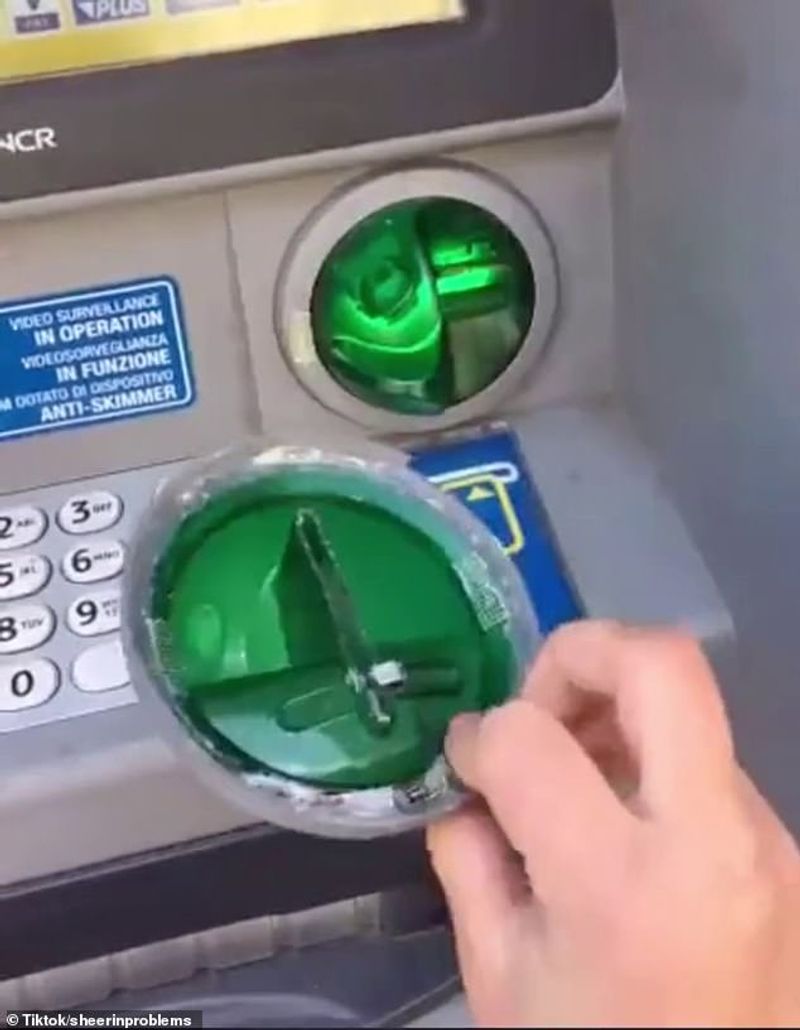
You slide your card into what looks like a normal ATM, but hidden inside the slot is a tiny device recording your card number. Meanwhile, a pinhole camera above the keypad captures your PIN as you type.
Skimmers and shimmers are getting harder to spot because they’re designed to blend seamlessly with the machine. Criminals then clone your card and drain your account before you even realize what happened.
Use ATMs inside bank branches whenever possible—they’re monitored and checked regularly. Before inserting your card, give the card slot a firm tug to see if anything moves. Always shield the keypad with your other hand when entering your PIN, and enable instant transaction alerts on your phone.
7. QR-code payment traps (parking meters/menus/tickets)
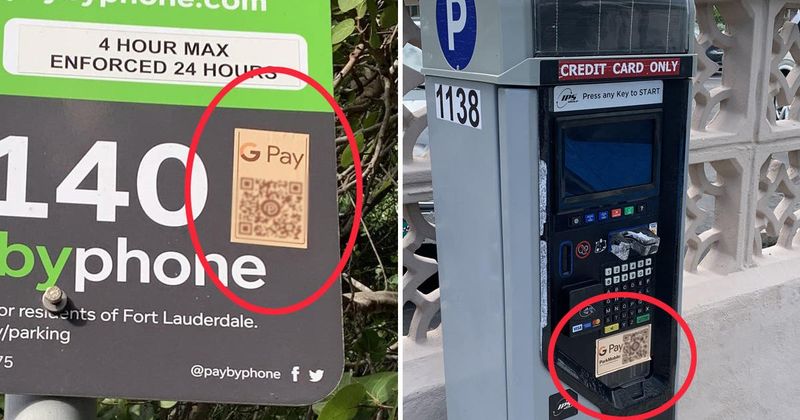
You find street parking and scan the QR code on the meter to pay quickly. What you don’t realize is that someone stuck a fake code over the real one, and now you’re entering your credit card on a phishing site.
Criminals place fraudulent QR stickers on parking meters, restaurant menus, and even fake parking tickets tucked under windshield wipers. The sites look legitimate enough that most people don’t notice until fraudulent charges appear.
Avoid scanning random QR codes in public spaces. Instead, download the official parking app for the city or pay directly at the physical machine. If you must use a code, manually type the official website URL into your browser rather than trusting the link that appears.
8. Evil-twin public Wi-Fi & airport hotspot cons
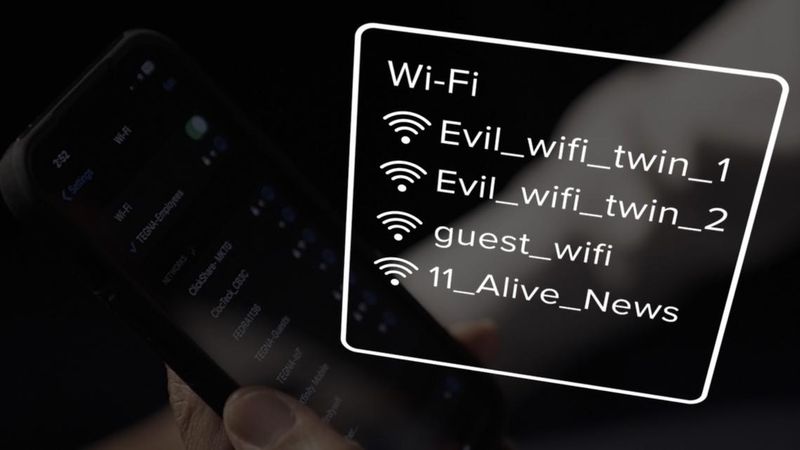
“Airport_Free_WiFi” looks perfectly legitimate when you connect at the gate. But it’s actually a rogue network set up by a hacker sitting nearby, and now every website you visit and password you enter flows straight through their laptop.
Evil-twin networks mimic real hotspot names, counting on travelers who are tired and just want to check email quickly. Once you’re connected, criminals can harvest login credentials, credit cards, and personal data.
Before connecting, ask airport or hotel staff for the exact official network name—spelling matters. Disable auto-join for Wi-Fi on your devices. Use a VPN to encrypt your traffic, and stick to your mobile data for banking or shopping. A little caution saves a lot of headaches.
9. Accommodation phishing (Booking/Airbnb lookalikes or hijacked in-app chats)
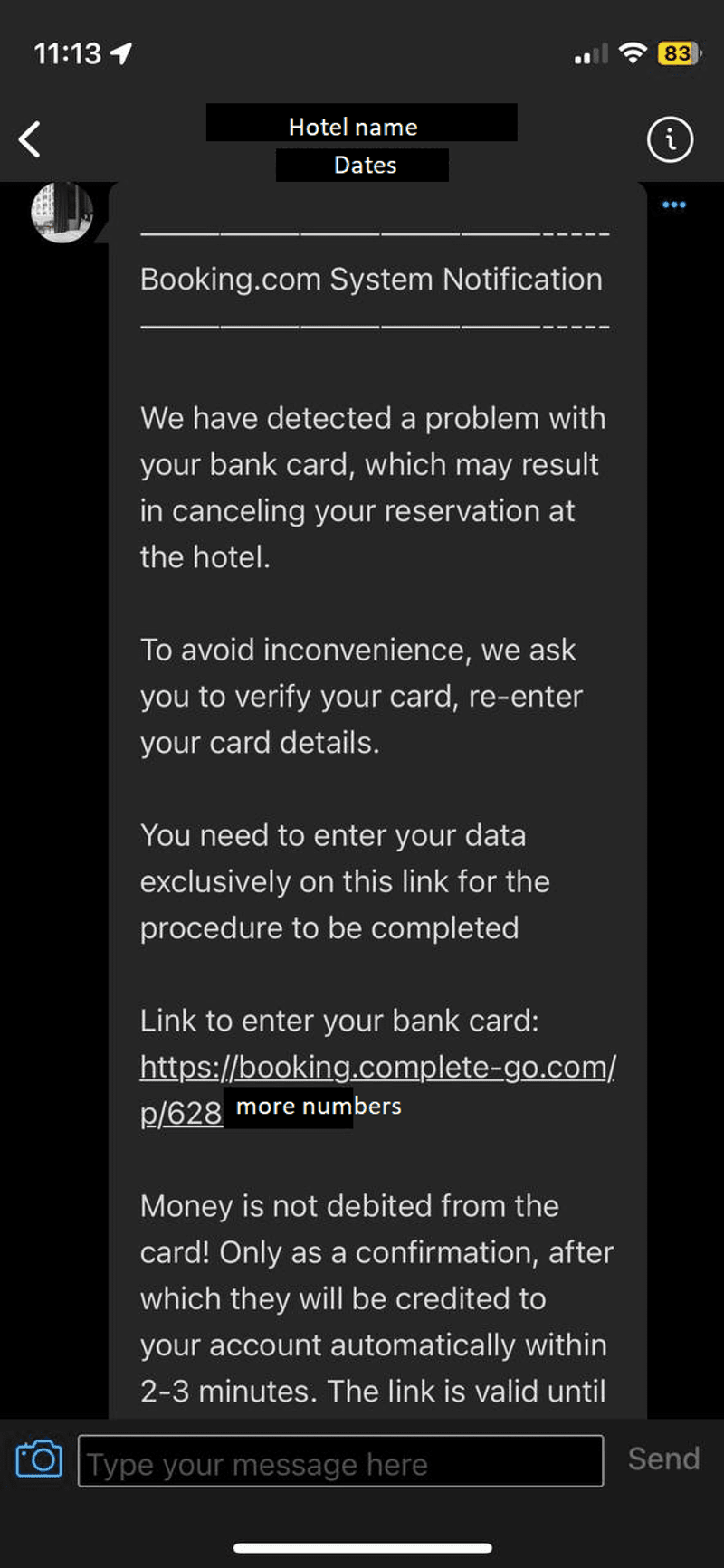
Days before your trip, you receive an urgent message through your booking app saying there’s a problem with your reservation. The message includes a link to “re-verify” your payment information immediately or risk cancellation.
Scammers either hack into hotel or host accounts to send messages through the platform, or they send convincing phishing emails that look like they’re from Booking or Airbnb. The links lead to fake login pages that steal your credentials and credit card details.
Always pay and communicate only within the official platform—never through external links or email requests. If something feels suspicious, close the message and call the property directly using a phone number from their verified website, not from the message itself.
10. Fake tours & guides

A friendly person approaches you near the Louvre, offering an “exclusive” tour at a great price if you pay cash right now. You hand over the money, but the tour never materializes, or it’s a rushed, uninformed walk that ends after fifteen minutes.
Unlicensed guides operate in tourist hotspots worldwide, promising experiences they can’t or won’t deliver. Some are simply unqualified; others are outright thieves who disappear with your deposit.
Book tours through established companies with verifiable reviews on TripAdvisor or Google. Check that guides carry official credentials or badges required by local regulations. Avoid anyone who approaches you on the street demanding cash upfront. Legitimate operators accept cards and provide receipts.
11. Bar/tea-ceremony invite with a shock bill

An attractive local strikes up a conversation and invites you to a “traditional tea ceremony” or a cozy bar they know. You chat for an hour over drinks, then the bill arrives: $800 for two beers and some snacks.
This scam is notorious in cities like Shanghai, Istanbul, and Prague. The “friendly local” gets a cut of whatever you’re charged, and aggressive staff may block the door until you pay. Menus either don’t show prices or they’re in fine print you didn’t notice.
Politely decline unsolicited social invitations from strangers, no matter how charming. If you do find yourself trapped with a shock bill, stay calm, call your credit card company immediately, and dispute the charge. Contact your embassy if staff become threatening.
12. Visa/ETA/ESTA copycat websites
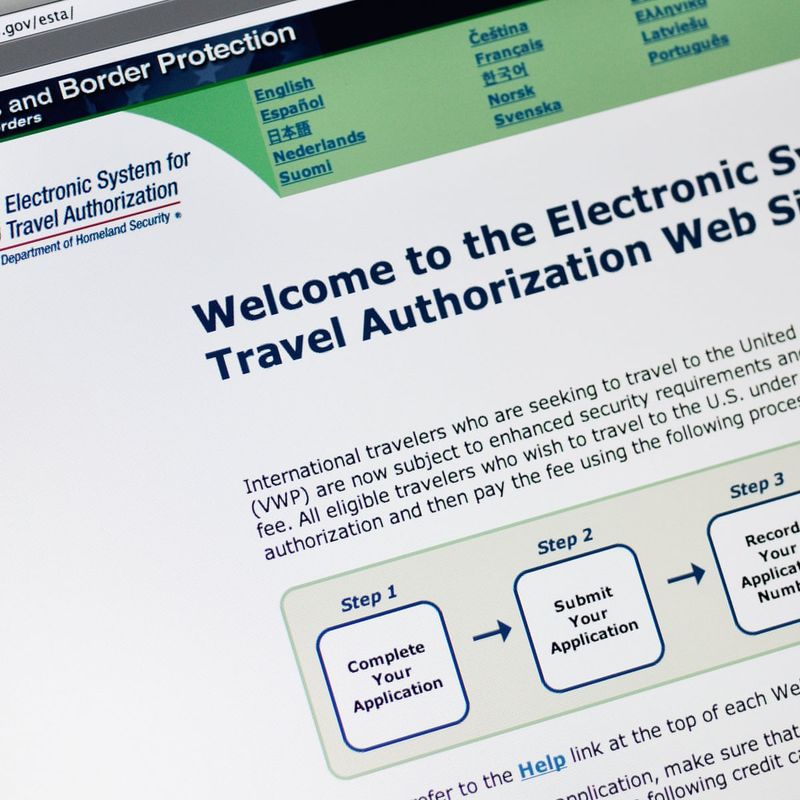
You Google “ESTA application” and click the first result, which looks official enough. You pay $99 for what should cost $21, or worse, you’ve just handed your passport details and credit card to criminals running a copycat site.
Fraudulent visa sites invest in ads to appear above official government links in search results. They either overcharge for a service they’ll never provide or harvest your data for identity theft.
Only apply through official government websites, which typically end in .gov or similar country-specific domains (like gov.uk). For U.S. travel authorization, use esta.cbp.dhs.gov directly—type it in yourself rather than clicking search results. The U.S. Customs and Border Protection website has clear warnings about these scams.
13. Currency exchange “short-change” & Dynamic Currency Conversion (DCC)
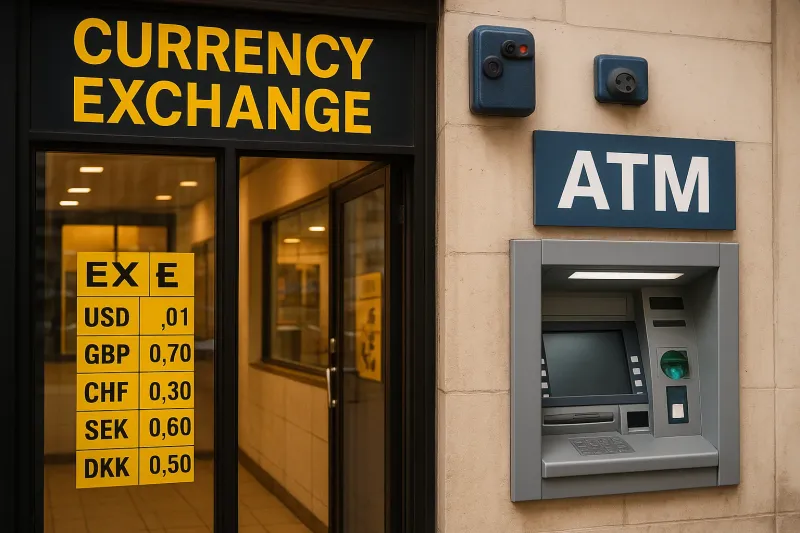
The exchange clerk counts out your euros lightning-fast, sliding the bills across the counter while chatting cheerfully. You pocket the cash without recounting, only to discover later that you’re missing fifty euros.
Short-changing relies on distraction and speed—most tourists don’t want to seem rude by double-checking. Meanwhile, Dynamic Currency Conversion tricks happen at payment terminals when you’re asked if you want to pay in your home currency; it sounds convenient, but the exchange rate is terrible and you’ll pay significantly more.
Use ATMs at reputable banks for the best rates. If using exchange counters, count every bill before leaving the window. Always choose to pay in local currency when using your card abroad to avoid inflated DCC fees.
14. Activity rental damage claims (scooters/jet-skis)

You return the jet-ski after a fun afternoon, and suddenly the rental operator points out a scratch you swear wasn’t there. He demands $500 in cash immediately for repairs, threatening to call the police or keep your passport if you refuse.
This scam is widespread in beach destinations across Thailand, Greece, and the Caribbean. The damage was already there, but without proof, you’re stuck arguing in a foreign country with someone who has your collateral.
Before you ride or drive anything, take photos and videos of the entire vehicle from every angle, with timestamps visible. Never leave your passport as a deposit—offer a credit card authorization instead. Rent only from established, well-reviewed companies that carry proper insurance.
15. “Free gift/rose” or charity shakedown at landmarks

Someone hands you a beautiful rose or a colorful bracelet as you’re taking photos at the Trevi Fountain. You smile and accept, thinking it’s a kind gesture, then they demand ten euros for it—and their friends start circling if you refuse.
These “gifts” are never free. Sometimes it’s a straight-up shakedown; other times it’s a distraction while an accomplice pickpockets you. The tactic works because most travelers don’t want to cause a scene or seem ungrateful.
Keep your hands in your pockets and don’t accept anything from strangers near tourist sites. If someone puts something in your hand, immediately give it back and keep walking. A firm “no” without breaking stride is your best defense against aggressive vendors.

